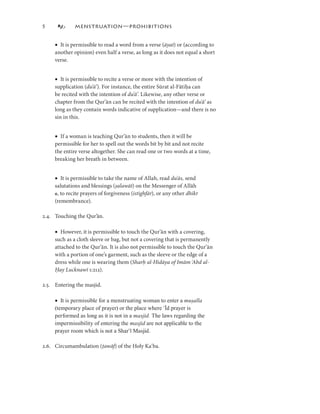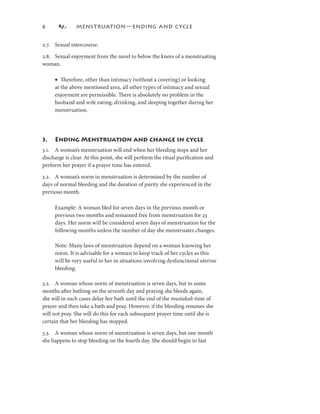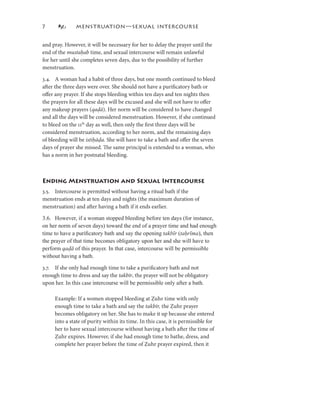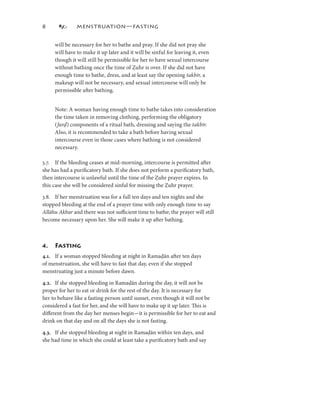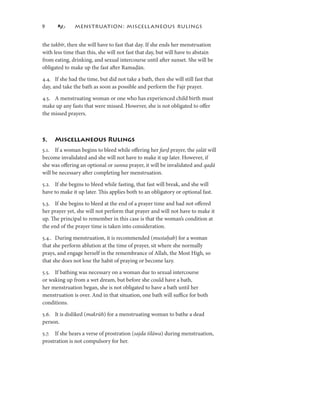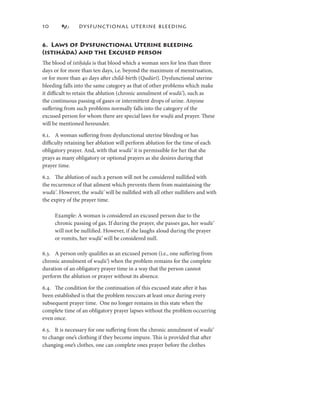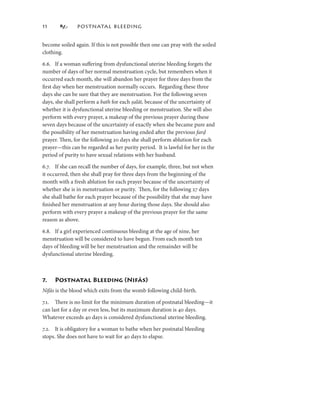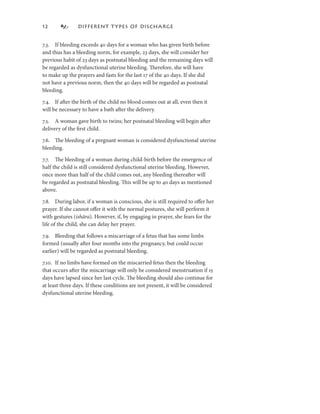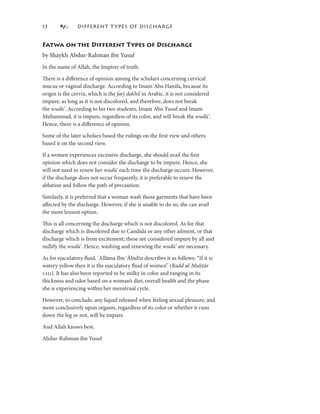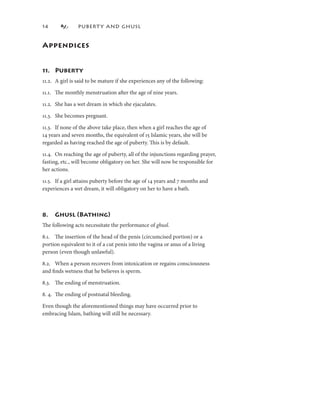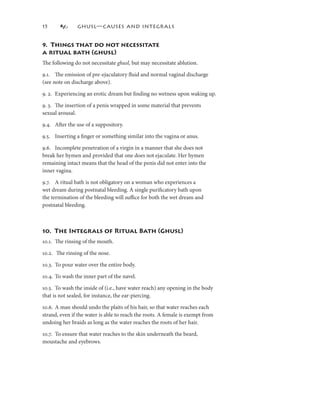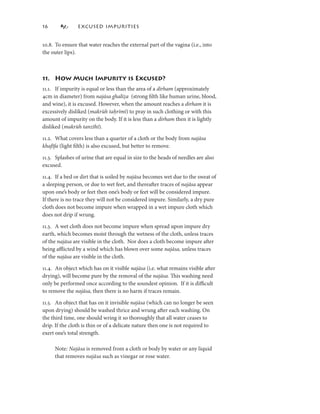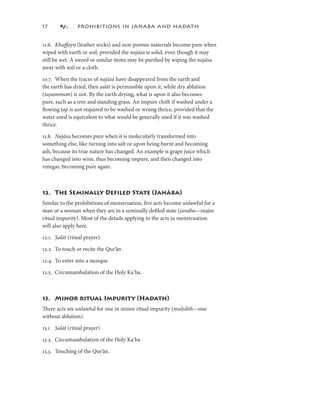This document discusses the Islamic laws regarding menstruation, postnatal bleeding, and dysfunctional uterine bleeding according to the Hanafi school of Islamic law. It provides definitions and details rules around the timing and duration of menstruation and postnatal bleeding. It outlines eight activities that are prohibited during menstruation and postnatal bleeding, including prayer, fasting, touching or reciting the Quran, entering a mosque, circumambulation of the Kaaba, and sexual intercourse. It also discusses when menstruation ends and changes to a woman's menstrual cycle.
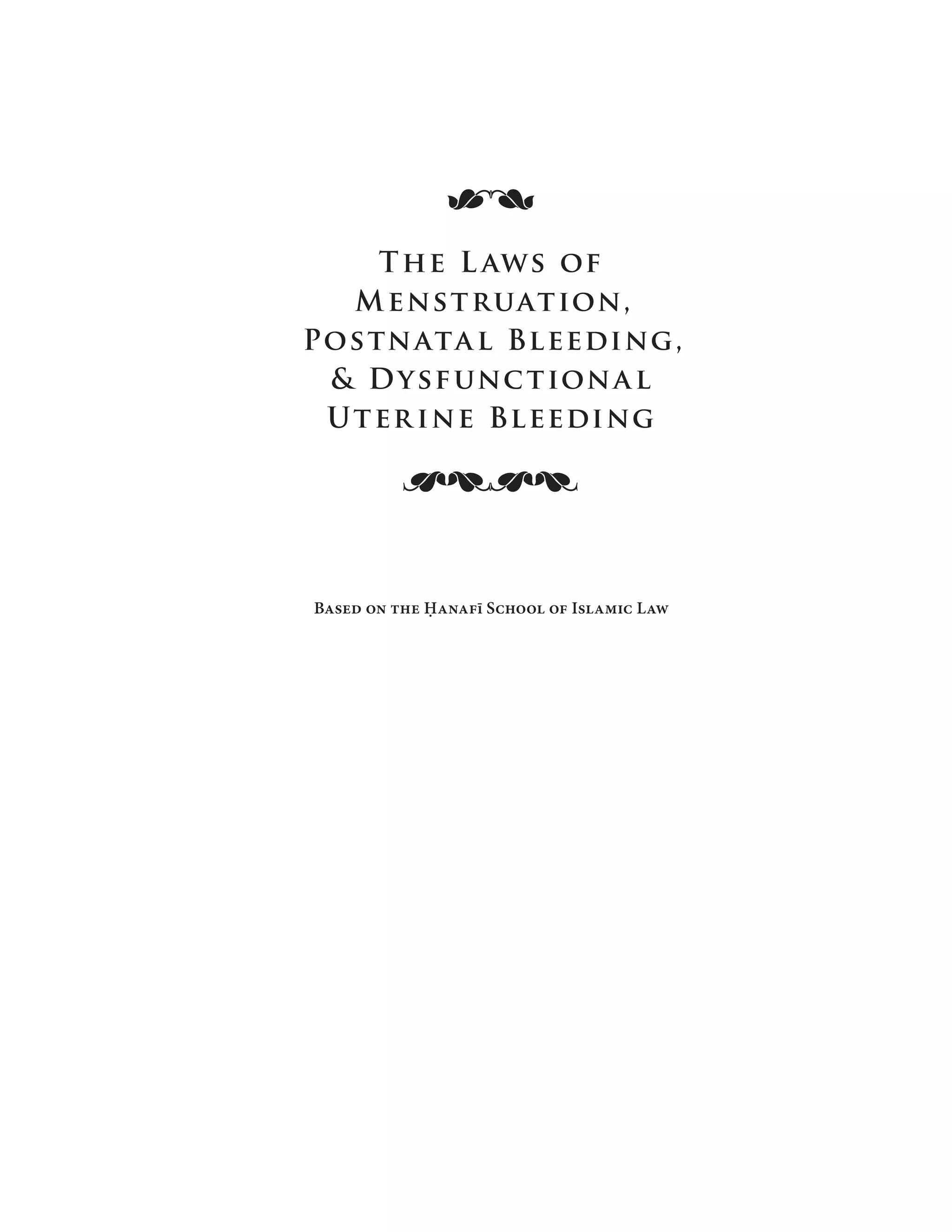
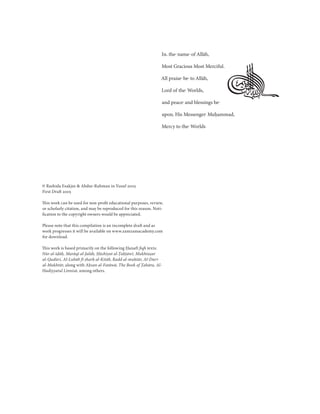
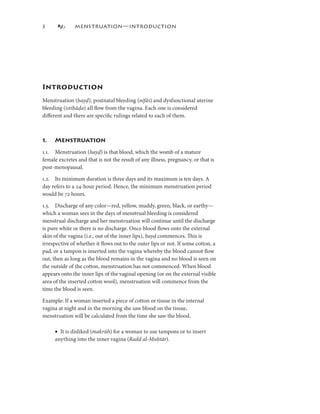
![4 MENSTRUATION—PROHIBITIONS
.4. The minimum duration of purity (ṭuhr) or duration of cleanliness
between two cycles is 5 days. If a woman, after completing her cycle begins
to bleed again within 5 days, it will not be considered the start of a new
cycle.
.5. There is no maximum duration for purity. Hence, a woman will
remain pure as long as she does not bleed, even if it extends to several
months or years.
.6. If a day or more of purity falls within the ten-day period of
menstruation, it will be [treated] as [continuously] flowing blood (Qudūrī).
Example: A woman bleeds for three days and then does not see
blood for two days. Then, she bleeds for one day; all six days will be
considered menstruation.
.7. A girl below the age of nine does not menstruate. If such a girl
notices blood, it is bleeding due to some illness and will be considered
dysfunctional uterine bleeding (istiḥāḍa), not menstruation.
2. Prohibitions during Menstruation
and Postnatal Bleeding
During the time a woman is menstruating or experiencing postnatal
bleeding, the following eight activities are prohibited:
2.. Ṣalāt (ritual prayer).
alāt
• It is also not permissible for her to perform a prostration of
gratitude (sajda shukr) or prostration of recitation (sajda tilāwa).
sajda shukr
2.2. Fasting—obligatory or otherwise.
2.3. Recitation of even a single verse of the Holy Qur’ān:
• Reading less than a verse without the intention of reciting the
Qur’ān is permissible, such as reciting Al-ḥamudu li ’Llāh “All praise
is for Allāh,” with the intention of gratitude or the recitation of Bismi
’Llāh “In the name of Allāh,” before eating (Al-Lubāb 43).](https://image.slidesharecdn.com/menstruationbleeding-101002171142-phpapp02/85/Menstruation-Bleeding-4-320.jpg)
